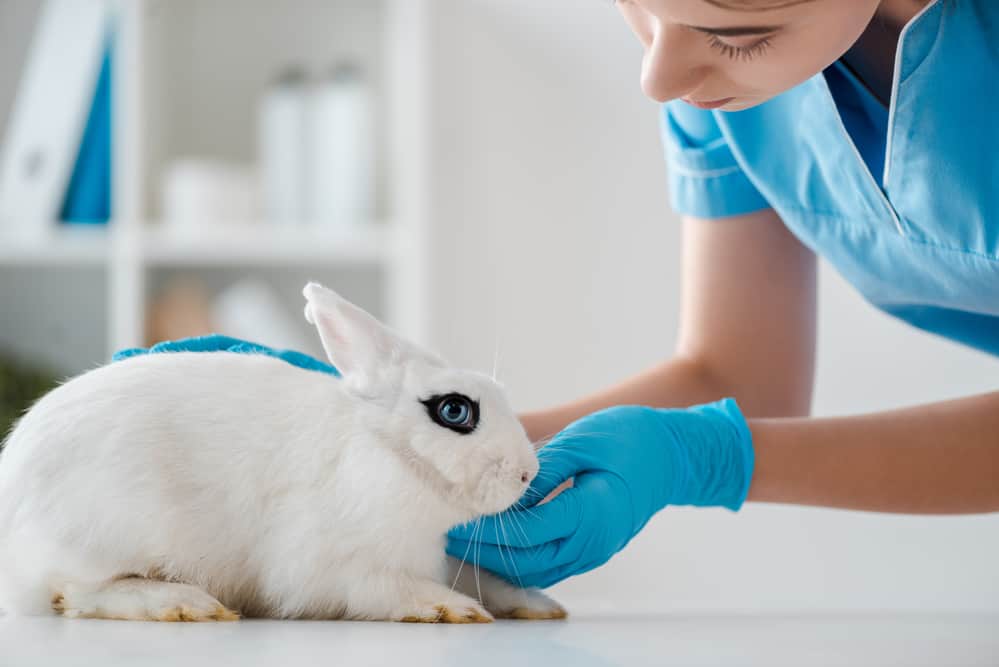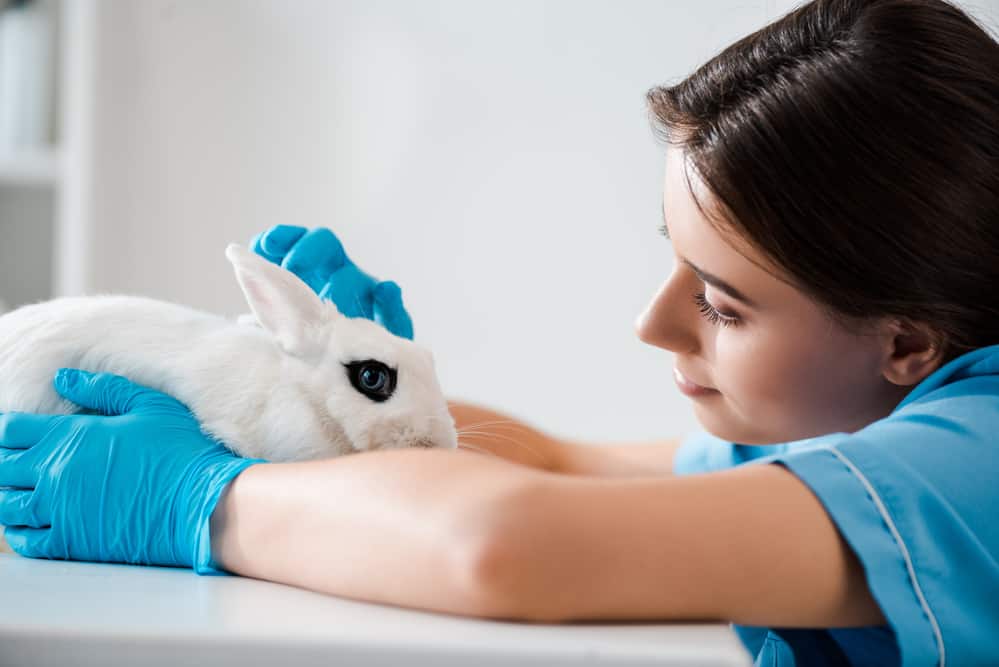
Many people think that rabbits are adorable pets to have, but what they don’t realize is just how much care goes into keeping rabbits.
Sure, they can be trained to use litter boxes and they can eat a wide variety of foods, but these aren’t the only factors to consider when it comes to caring for rabbits.
For instance, did you know that it is very important to spay or neuter rabbits, just like you would with a cat or a dog?
Just like with cats and dogs, rabbits that have been spayed or neutered have longer life spans than those that are unaltered.
There is also a risk of many health problems, such as certain reproductive cancers for unsprayed females.
Male rabbits can be quite aggressive unless they are neutered, and they will fight with other pets in the home, including cats, due to this sexual aggression.
We are going to take a look at the reasons for spaying and neutering rabbits, the safety of the procedures, and other facts you should know before getting a rabbit for a pet.
Why Should Rabbits be Spayed or Neutered?
In the previous paragraph, we mentioned that rabbits can be prone to health problems and aggression if they are unaltered.
But, there are several other reasons why you should have rabbits spayed and neutered.
Better pets
Rabbits that are spayed or neutered tend to make better pets than unaltered rabbits.
They are much calmer and tend to be more loving. They don’t have the urge to mate, so they aren’t as aggressive.
Unaltered rabbits tend to be destructive, chewing and digging furniture, footwear, etc.
Altered rabbits aren’t nearly as destructive for the most part.
Easier to train
One of the biggest problems with an unaltered male rabbit is that it sprays, just like a male cat, and that spray stinks.
This is not an issue if the rabbit has been neutered. Male and female rabbits can be trained to use litter boxes, and this training is a lot easier when the rabbits have been spayed or neutered.
No overpopulation
Do you have any idea how many rabbits are euthanized each year in animal shelters?
Rabbits are prolific breeders, and often the babies are left to fend for themselves, and if they do mature, they will breed as well; soon there is an overpopulation of rabbits.
This is not an issue when you have rabbits spayed and neutered.
Friends to play with
If you have an unaltered rabbit, it must be a lone rabbit.
Unfortunately, this is not good for the rabbit, because they are social creatures.
When they are spayed and neutered, you can put them with other rabbits that have been spayed or neutered.
If they are unaltered, they can be too aggressive and can hurt other animals.
Is it Safe to Spay and Neuter Rabbits?

Some people think that because they are so small that surgery is not safe for rabbits.
This is entirely untrue. Surgery can be safe for any animal.
The problem with rabbits is that there are very few veterinarians that are experienced with doing surgery on rabbits.
If you are going to have rabbits as pets, make sure you find a veterinarian who is experienced with these animals, and with the surgical techniques needed for them.
As for anesthetic and surgery and aftercare, these are as safe as they would be for a cat or a dog.
Just like with cats and dogs, it is not a good idea to spay or neuter a rabbit until it is sexually mature, around four months old.
In fact, many veterinarians advise waiting until rabbits are six months of age before they are spayed or neutered.
Males can be neutered once their testicles descend, which is around eight to 12 weeks old.
Females shouldn’t be neutered until they are three to four months of age.
There also comes a time when a rabbit is too old to be altered, usually after they are six years old.
This is because it becomes more risky to use anesthetics, and surgery can be much riskier.
If you are considering adopting a rabbit that is older and unaltered, it is a good idea to talk to your veterinarian about the safety of spaying and neutering.
They may recommend pre-surgery blood work to ensure that the animal is in good enough health to go through the surgery.
How to Tell if a Female Rabbit Has Been Spayed
If you are going to get an older, female rabbit, chances are that it has not been spayed.
One of the best ways to tell if a female has been spayed is to shave the belly and look for a scar.
But, there are some vets who use stitching techniques that make scars practically invisible, so this is not always the best way to tell.
Some veterinarians will tattoo the belly, which indicates that the animal has indeed been spayed.
Unfortunately, in most cases, the only way to know for sure is to go ahead with the surgery, and the veterinarian will be able to tell at this time.
Pre- and Post-Operative Care

There is very little that you need to do prior to surgery for rabbits, with the exception of making sure the digestive system is functioning properly.
Many veterinarians will recommend that the rabbit be given acidophilus for a few days before the operation, which will help the digestive system. It is not necessary to change a rabbit’s diet prior to surgery.
After the surgery, the rabbit may require pain medication, particularly a female.
The incision should be inspected twice daily. In the case of neutering a male, the scrotum may become swollen and filled with fluid, but this is nothing to be concerned with.
Warm compresses can help to ease this problem. If you do notice any signs of infection, the rabbit should be taken to the veterinarian immediately.
Conclusion
Rabbits can make lovely pets, and they can be trained to use litter boxes just as cats can.
Spaying and neutering rabbits are extremely important, and it is something that any responsible pet owner should take care of at the proper time.
Related Posts:

